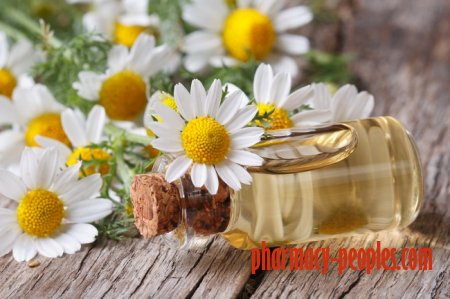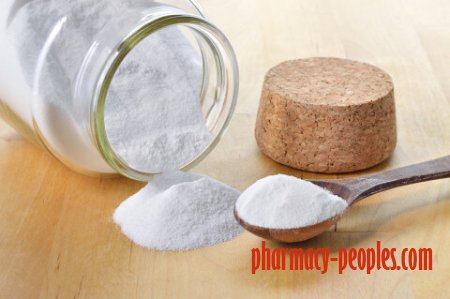HOME REMEDIES TO TREAT PSORIASIS NATURALLY
Psoriasis is a chronic skin disease that causes inflammation and scaling of the skin . Normal, healthy skin experiences cell turnover about once a month, but when you have psoriasis, the skin cells rise way too fast and actually pile up on top of each other. Thankfully, you can help combat this condition with by following a proper psoriasis diet treatment plan.
We know that psoriasis begins in the immune system and involves a type of white blood cell called a T cell. When you have psoriasis, the T cells are put into action by mistake and become overly active, leading to unhealthy swelling and fast turnover of skin cells.
Psoriasis symptoms can vary according to the form of psoriasis, of which there are several. You might be thinking psoriasis is just an annoying skin condition, but it can also result in psoriatic arthritis, an inflammation of the joints that affects approximately 15 percent of all psoriasis patients.
Conventional psoriasis treatment might work, but it often doesn’t or is only a temporary fix that doesn’t get to the heart of the issue. There are many natural remedies for psoriasis, with a psoriasis diet making the very top of the list.
Psoriasis Symptoms and Causes
The most common psoriasis symptoms, especially those seen in people with plaque psoriasis, include: (4)
plaques of red skin, sometimes also covered with a crust of scales that tend to be silver or white
loose skin or lesions that can be sensitive, itchy and painful
dandruff on the scalp
cracked, discolored skin that easily bleeds and bruises
discoloration in the finger and toenails or growth of toenail fungus
nails that detach from the nail beds and can be painful or bloody
many people with psoriasis also suffer from emotional problems due to feeling embarrassed and hopeless about their skin (5)
Psoriasis is most often found on the elbows, legs, scalp, lower back, face, palms and soles of the feet. However, it can also occur in other locations, such as the fingernails, toenails, genitals and inside the mouth.
Most doctors are unsure about what causes psoriasis, but many natural physicians have found contributing factors. The causes of psoriasis include:
Poor diet
Abnormal small intestine permeability
An increased number of T cells in the blood, dermis and epidermis
Difficulty digesting protein
Emotional stress
Hormonal changes
Genetics
Vitamin D deficiency
Poor liver function
If you want to overcome psoriasis, you can see great improvements by following a healthy and healing psoriasis diet.
1. Reduce Stress
Stress is also known to play a big role in psoriasis, which is why mind-body therapies and stress management can really help naturally heal psoriasis. Prayer, meditation and hypnosis can all help. Studies actually show that people who meditate before receiving light therapy have better outcomes than people who had light therapy alone.
2. Exercise and Drink Water
It may sound too simple, but exercise and drinking plenty of water are two easy and effective ways to help heal psoriasis. When it comes to bathing, you definitely don’t want to use water that’s too hot because this can further dry and inflame your skin. Soaking in a lukewarm bath containing dead sea salts, Epsom salt or oats for around 15 minutes can help remove scales and calm itching. Be sure to apply moisturizer to your skin as soon as you get out of a bath or shower — this way you can seal some water into your skin, which can help to calm and heal psoriasis patches.
3. Apply Nature-Based Topical Remedies
There are three nature-based topical remedies that have shown positive effects on psoriasis: Oregon grape (10 percent) cream, avocado and vitamin B12 cream, and aloe (0.5 percent) cream. Research has shown that using Reli?va, a homeopathic cream containing Oregon grape extract, is effective and well-tolerated in patients with mild to moderate psoriasis. Early research suggests that a proprietary cream containing avocado oil and vitamin B12 may decrease psoriasis symptoms. Several studies have shown that a cream containing 0.5 percent aloe vera extract is superior to a placebo with no negative side effects.
4. Try Homeopathy and Other Alternative Treatments
Homeopathy is another natural remedy shown to improve psoriasis. Studies have shown that homeopathic treatment of psoriasis patients results in improved symptoms and overall quality of life.
Acupuncture and Chinese medicine may also help some people with psoriasis. In Chinese medicine, psoriasis is viewed as a health issues caused by the stagnation of blood. Some herbs a Chinese medicine doctor may prescribe include turmeric, zedoria (similar to ginger), dang gui, red peony and sarsaparilla. Dittany, sophora and tribulus may also be prescribed to relieve psoriasis-related itching.
If you’re a fan of Ayurvedic medicine, you may want to try Panchakarma therapy, which involves plant-based remedies and dietary changes aimed at detoxifying the body. A vegetarian diet is often recommended as well. The Panchakarma treatments include consuming ghee and medicated enemas.
5. Eat a Psoriasis Diet (see more below)
A psoriasis diet is crucial. If you have a leaky gut, then partially digested protein and fat can seep through your intestinal lining, making their way into your bloodstream and causing allergic responses. If left unrepaired, it can lead to more severe health issues like psoriasis as well as depression, anxiety, migraine headaches, muscle pain and chronic fatigue. Studies have shown a link between abnormal small intestine permeability and psoriasis. A psoriasis diet can heal your gut, which in turn can end your suffering with psoriasis as well as psoriatic arthritis.
6.Avoid alcohol
Alcohol is a trigger for many people who have psoriasis. A study from Brigham and Women’s Hospital and Harvard Medical School found an increased risk of psoriasis among women who drank nonlight beer. Those who drank at least five nonlight beers per week were nearly twice as likely to develop psoriasis, when compared to women who didn’t drink.
7. Try turmeric
Herbs are commonly used to treat many conditions. Turmeric has been found to help minimize psoriasis flare-ups. It can be taken in pill or supplement form or sprinkled on your food. Talk to your doctor about the potential benefits for you. The FDA-approved dosage of turmeric is 1.5 to 3.0 grams per day.
8. Stop smoking
Avoid tobacco. Smoking may increase your risk of psoriasis. If you already have psoriasis, it can also make your symptoms more severe.
Psoriasis is not contagious or curable and is likely to cause permanent pigmentation of the skin. Here are certain foods that can help prevent and reduce psoriasis build up.
1. Aloe Vera Gel:
Break aloe vera leaves and apply the gel directly onto affected areas thrice a day. The Vitamin E helps soothe and heal skin
2. Banana Peel:
This is a cheap and effective way to reduce the symptoms of psoriasis. Just rub the inside of the banana skin on itchy regions for relief.
3. Apple Cider Vinegar:
Mix equal parts of luke warm water and apple cider vinegar and apply the mix on lesions using a cotton ball.
4. Chamomile Essential Oil:
Several essential oils can reduce the symptoms of psoriasis, this one being the best. It reduces inflammation and any irritation on the skin.
5. Cayenne Pepper:
Consuming foods that contain cayenne pepper can reduce inflammation from within. Mix cayenne pepper powder with water to make a paste and apply this on lesions. Avoid using it on broken or dry skin.
6.Olive and Coconut Oil:
Simply applying olive oil on lesions will reduce inflammation and also moisturize the skin. If olive oil is too expensive then go for coconut oil instead, it has the same effect.
7. Fish Oil:
Include fish oil into your daily diet or consume it in the form of capsules.
8. Baking Soda:
Combine 1 teaspoon with 4 teaspoons of water and apply this mix on places that are itching with a cotton ball. Allow it to dry and wash off with lukewarm water.
9. Oatmeal and Epsom Salt:
Dissolve a cup of raw oatmeal or Epsom salt in your bathtub of lukewarm water and soak in it for a while.
We know that psoriasis begins in the immune system and involves a type of white blood cell called a T cell. When you have psoriasis, the T cells are put into action by mistake and become overly active, leading to unhealthy swelling and fast turnover of skin cells.
Psoriasis symptoms can vary according to the form of psoriasis, of which there are several. You might be thinking psoriasis is just an annoying skin condition, but it can also result in psoriatic arthritis, an inflammation of the joints that affects approximately 15 percent of all psoriasis patients.
Conventional psoriasis treatment might work, but it often doesn’t or is only a temporary fix that doesn’t get to the heart of the issue. There are many natural remedies for psoriasis, with a psoriasis diet making the very top of the list.
Psoriasis Symptoms and Causes
The most common psoriasis symptoms, especially those seen in people with plaque psoriasis, include: (4)
plaques of red skin, sometimes also covered with a crust of scales that tend to be silver or white
loose skin or lesions that can be sensitive, itchy and painful
dandruff on the scalp
cracked, discolored skin that easily bleeds and bruises
discoloration in the finger and toenails or growth of toenail fungus
nails that detach from the nail beds and can be painful or bloody
many people with psoriasis also suffer from emotional problems due to feeling embarrassed and hopeless about their skin (5)
Psoriasis is most often found on the elbows, legs, scalp, lower back, face, palms and soles of the feet. However, it can also occur in other locations, such as the fingernails, toenails, genitals and inside the mouth.
Most doctors are unsure about what causes psoriasis, but many natural physicians have found contributing factors. The causes of psoriasis include:
Poor diet
Abnormal small intestine permeability
An increased number of T cells in the blood, dermis and epidermis
Difficulty digesting protein
Emotional stress
Hormonal changes
Genetics
Vitamin D deficiency
Poor liver function
If you want to overcome psoriasis, you can see great improvements by following a healthy and healing psoriasis diet.
Natural Treatment
1. Reduce Stress
Stress is also known to play a big role in psoriasis, which is why mind-body therapies and stress management can really help naturally heal psoriasis. Prayer, meditation and hypnosis can all help. Studies actually show that people who meditate before receiving light therapy have better outcomes than people who had light therapy alone.
2. Exercise and Drink Water
It may sound too simple, but exercise and drinking plenty of water are two easy and effective ways to help heal psoriasis. When it comes to bathing, you definitely don’t want to use water that’s too hot because this can further dry and inflame your skin. Soaking in a lukewarm bath containing dead sea salts, Epsom salt or oats for around 15 minutes can help remove scales and calm itching. Be sure to apply moisturizer to your skin as soon as you get out of a bath or shower — this way you can seal some water into your skin, which can help to calm and heal psoriasis patches.
3. Apply Nature-Based Topical Remedies
There are three nature-based topical remedies that have shown positive effects on psoriasis: Oregon grape (10 percent) cream, avocado and vitamin B12 cream, and aloe (0.5 percent) cream. Research has shown that using Reli?va, a homeopathic cream containing Oregon grape extract, is effective and well-tolerated in patients with mild to moderate psoriasis. Early research suggests that a proprietary cream containing avocado oil and vitamin B12 may decrease psoriasis symptoms. Several studies have shown that a cream containing 0.5 percent aloe vera extract is superior to a placebo with no negative side effects.
4. Try Homeopathy and Other Alternative Treatments
Homeopathy is another natural remedy shown to improve psoriasis. Studies have shown that homeopathic treatment of psoriasis patients results in improved symptoms and overall quality of life.
Acupuncture and Chinese medicine may also help some people with psoriasis. In Chinese medicine, psoriasis is viewed as a health issues caused by the stagnation of blood. Some herbs a Chinese medicine doctor may prescribe include turmeric, zedoria (similar to ginger), dang gui, red peony and sarsaparilla. Dittany, sophora and tribulus may also be prescribed to relieve psoriasis-related itching.
If you’re a fan of Ayurvedic medicine, you may want to try Panchakarma therapy, which involves plant-based remedies and dietary changes aimed at detoxifying the body. A vegetarian diet is often recommended as well. The Panchakarma treatments include consuming ghee and medicated enemas.
5. Eat a Psoriasis Diet (see more below)
A psoriasis diet is crucial. If you have a leaky gut, then partially digested protein and fat can seep through your intestinal lining, making their way into your bloodstream and causing allergic responses. If left unrepaired, it can lead to more severe health issues like psoriasis as well as depression, anxiety, migraine headaches, muscle pain and chronic fatigue. Studies have shown a link between abnormal small intestine permeability and psoriasis. A psoriasis diet can heal your gut, which in turn can end your suffering with psoriasis as well as psoriatic arthritis.
6.Avoid alcohol
Alcohol is a trigger for many people who have psoriasis. A study from Brigham and Women’s Hospital and Harvard Medical School found an increased risk of psoriasis among women who drank nonlight beer. Those who drank at least five nonlight beers per week were nearly twice as likely to develop psoriasis, when compared to women who didn’t drink.
7. Try turmeric
Herbs are commonly used to treat many conditions. Turmeric has been found to help minimize psoriasis flare-ups. It can be taken in pill or supplement form or sprinkled on your food. Talk to your doctor about the potential benefits for you. The FDA-approved dosage of turmeric is 1.5 to 3.0 grams per day.
8. Stop smoking
Avoid tobacco. Smoking may increase your risk of psoriasis. If you already have psoriasis, it can also make your symptoms more severe.
9 HOME REMEDIES TO TREAT PSORIASIS NATURALLY
Psoriasis is not contagious or curable and is likely to cause permanent pigmentation of the skin. Here are certain foods that can help prevent and reduce psoriasis build up.
1. Aloe Vera Gel:
Break aloe vera leaves and apply the gel directly onto affected areas thrice a day. The Vitamin E helps soothe and heal skin
2. Banana Peel:
This is a cheap and effective way to reduce the symptoms of psoriasis. Just rub the inside of the banana skin on itchy regions for relief.
3. Apple Cider Vinegar:
Mix equal parts of luke warm water and apple cider vinegar and apply the mix on lesions using a cotton ball.
4. Chamomile Essential Oil:
Several essential oils can reduce the symptoms of psoriasis, this one being the best. It reduces inflammation and any irritation on the skin.
5. Cayenne Pepper:
Consuming foods that contain cayenne pepper can reduce inflammation from within. Mix cayenne pepper powder with water to make a paste and apply this on lesions. Avoid using it on broken or dry skin.
6.Olive and Coconut Oil:
Simply applying olive oil on lesions will reduce inflammation and also moisturize the skin. If olive oil is too expensive then go for coconut oil instead, it has the same effect.
7. Fish Oil:
Include fish oil into your daily diet or consume it in the form of capsules.
8. Baking Soda:
Combine 1 teaspoon with 4 teaspoons of water and apply this mix on places that are itching with a cotton ball. Allow it to dry and wash off with lukewarm water.
9. Oatmeal and Epsom Salt:
Dissolve a cup of raw oatmeal or Epsom salt in your bathtub of lukewarm water and soak in it for a while.
- Health / Disease
- 19-03-2017, 16:16
- 1 588
- Pharmatic



